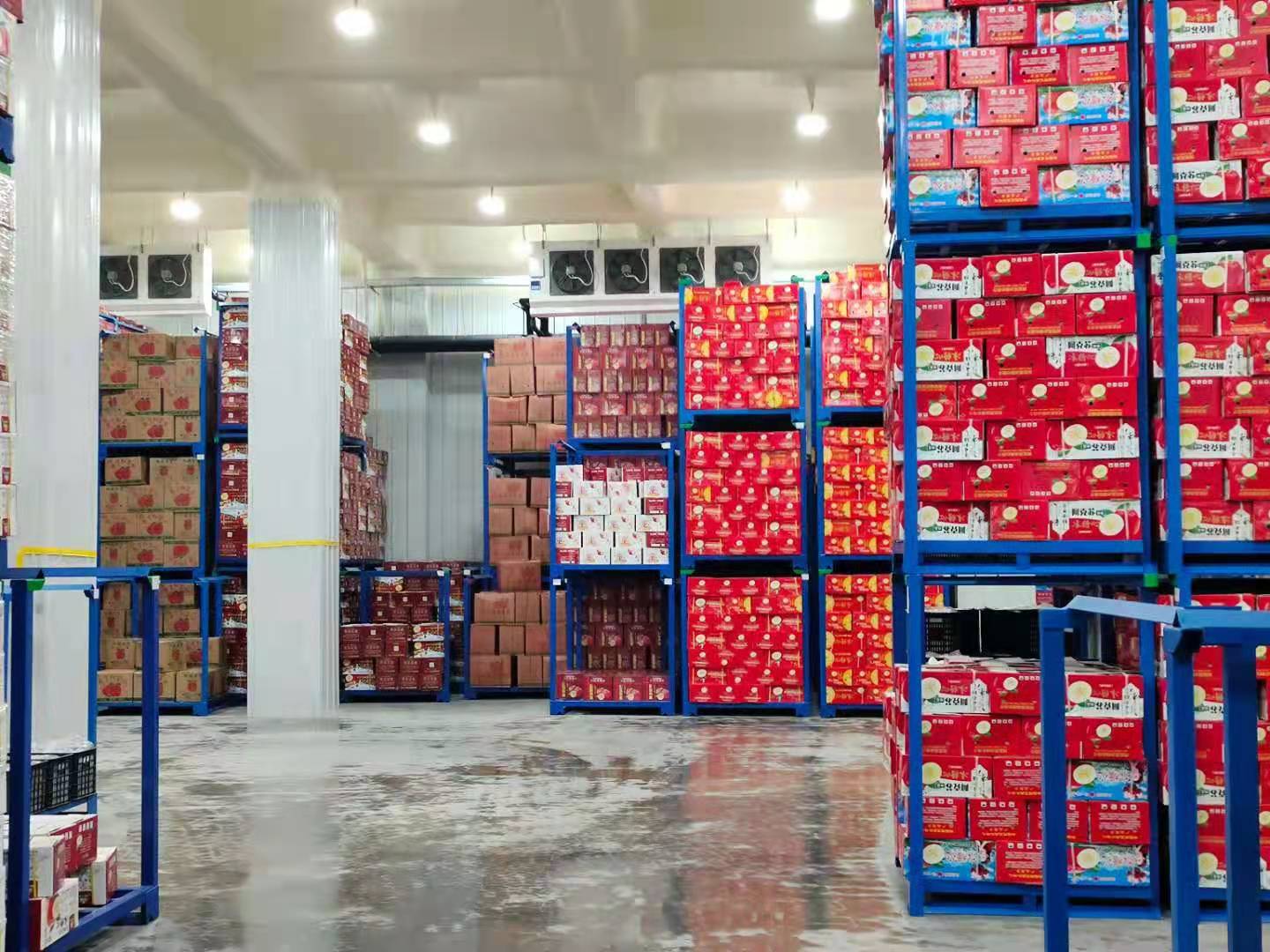
Fruit gas-conditioning freshness storage is the use of gas conditioning technology, through the control of the library gas composition, temperature, humidity and other environmental factors, in order to extend the storage period of the fruit and maintain its quality. When operating a fruit gas-conditioning freshness storage, the following important requirements need to be observed:
1.Temperature control: The temperature control of a fruit gas-conditioned freshness storage is of vital importance, and different kinds of fruits have their own ideal storage temperatures. Generally speaking, the storage temperature range for most fruits is between 0℃ and 10℃. Precise temperature control can effectively slow down the metabolism of fruits and delay the aging and decay process.
2.Humidity control: Humidity management is also key to the operation of a fruit air-conditioned fresh storage. Proper humidity can prevent dehydration and quality loss of fruits. The general recommended humidity range is 85% to 95%. Too low or too high humidity may lead to fruit quality damage such as drying out or mould.
3.Regulation of gas composition: At the heart of gas-conditioned storage is the precise control of oxygen, carbon dioxide and other gases. By lowering the oxygen concentration and increasing the carbon dioxide concentration, the respiration and ripening process of fruits can be effectively slowed down. The adjustment of gas ratio needs to be adjusted according to the needs of different fruits to ensure optimal preservation.

4.Ventilation and air circulation: A good ventilation system can help maintain uniformity in gas composition and remove heat and ethylene produced during respiration, which is a plant hormone that accelerates ripening and senescence. Therefore, ensuring proper air circulation is necessary.
5.Real-time monitoring and adjustment: Operating an air-conditioned freshness storage facility requires the implementation of a real-time monitoring system that continuously monitors parameters such as temperature, humidity, and gas concentration and adjusts them as needed. This monitoring not only ensures that the storage conditions are always maintained in the best state, but also timely detection and resolution of possible problems.
6.Cleaning and hygiene: Regular cleaning of the freshness store, especially the storage racks, floors and walls, is essential to prevent the spread of germs and pests. In addition, any rotting fruit in the store should be removed immediately to prevent the spread of disease.
7.Personnel training: Employees who operate and maintain air-conditioned preservation depots need specialised training in the storage requirements of different fruits and in the operating procedures of the equipment. Good operating habits and professional knowledge are the basis for successful operation of the warehouse.
8.Contingency plan: Establish a contingency plan to deal with possible equipment failure or other emergencies, such as power interruption, system failure, etc., to ensure that measures can be taken quickly to minimise the impact on fruit quality.
Effective operation of a fruit air-conditioned freshness storage facility not only significantly extends the shelf life of fruit, but also helps to maintain its nutrition and flavour, and is a safeguard for all parts of the fruit supply chain. Proper operation and management not only relies on advanced technology and equipment, but also requires professional operation and thoughtful routine maintenance. If you have such cold storage construction needs in the near future, HAOCOOL specialises in providing a complete set of cold storage engineering design, equipment, installation, after-sales integrated solutions for large-scale food, pharmaceutical, cold chain logistics, chemical and other enterprises to provide cold storage construction services.
Contact: Haocool
Tel: +86 18918087579
Phone: +86 18918087579
E-mail: marina@haocool.com
Add: Building 5, No.499 Minqiang Road, Xinqiao Town, Songjiang District, Shanghai, China